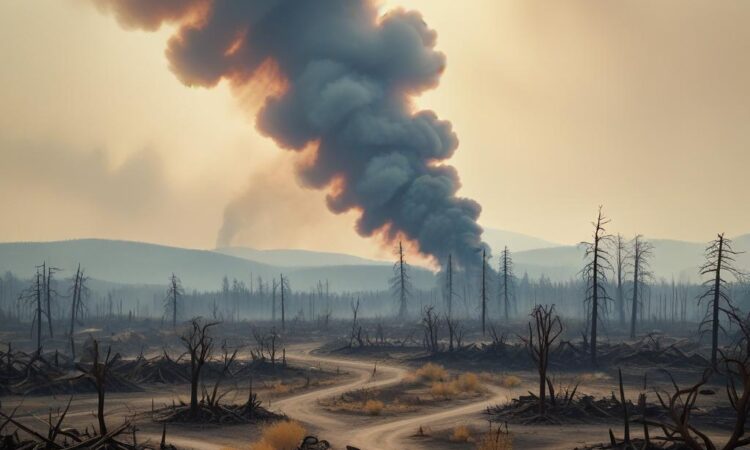Atomfall: How a Forgotten Nuclear Disaster Inspired a Video Game
Okay, so you might not have heard of the Windscale fire. Most people haven’t. It happened way back in 1957, in Cumbria, England. Think rolling hills, sheep, and… a pretty major nuclear accident. Yeah, it’s a bit of a downer, but it’s also the inspiration for a brand new video game, Atomfall, and that’s pretty cool, right?
I mean, nuclear disasters aren’t usually the first thing that springs to mind when you think about video games. We’re used to zombies, aliens, maybe some intergalactic space battles. But Atomfall takes a different approach. It’s all about survival, resource management, and the long-term effects of radiation – basically, a whole lot of realistic (well, relatively realistic) grimness. And that’s what makes it so compelling.
The game puts you right in the heart of Cumbria, in the aftermath of the Windscale fire. Imagine trying to rebuild your life amidst the fallout, facing shortages of food and water, battling radiation sickness, all while trying to figure out what the heck actually happened. It’s not all doom and gloom though; there’s a strong community aspect to the game, highlighting the resilience of the human spirit in the face of unimaginable hardship.
The developers have clearly done their homework. They’ve gone to great lengths to accurately depict the events of 1957, incorporating historical details and real-world challenges faced by the people of Cumbria at the time. It’s not just a game; it’s a historical experience – albeit a slightly terrifying one. And that’s what makes it stand out. It’s not just about blowing things up, it’s about understanding consequences.
One of the most interesting aspects of Atomfall is its focus on the long-term impact of the disaster. It’s not just about the immediate aftermath; the game explores how the event shaped the lives of those who lived through it, and how its consequences continue to ripple through generations. It’s a powerful reminder of the enduring impact of human actions, and the importance of learning from the past.
So, why should you care? Well, firstly, it’s a genuinely unique game. It tackles a serious historical event in a way that’s both engaging and informative. Secondly, it’s a well-made game. The developers have clearly put a lot of work into making it both playable and historically accurate, balancing the grim reality with a compelling story.
But perhaps the most compelling reason to check out Atomfall is that it sheds light on a largely forgotten piece of history. The Windscale fire wasn’t a small incident. It was a significant event with lasting consequences, and Atomfall helps to keep its memory alive. It encourages players to learn more about the event, to reflect on its impact, and to appreciate the resilience of the people affected.
It’s a reminder that history isn’t always glamorous. Sometimes it’s grim, and sometimes it’s important to confront those grim realities. Atomfall does just that, using the medium of video games to educate and entertain simultaneously. It’s a testament to the power of games to not only provide escapism, but also to teach us about the world around us.
Beyond the game’s narrative, there’s also plenty of gameplay to sink your teeth into. Imagine meticulously managing resources, balancing the needs of your community, and navigating the treacherous landscape of a post-disaster Cumbria. It’s a challenging experience, to be sure, but incredibly rewarding when you manage to overcome the odds. It’s a game that will stay with you, long after you’ve put down the controller.
So, if you’re looking for something a little different, something that will challenge you, educate you, and leave a lasting impression, give Atomfall a try. It’s a game that deserves more than just a passing glance – it deserves to be remembered.
It’s not just a game, it’s a story waiting to be discovered. A story about survival, resilience, and the enduring impact of a forgotten disaster. And yes, it’s a little bit scary, but also utterly fascinating.
Go on, give it a shot. You might just learn something along the way.

